Andreea-Codrina Moldovan
Datasets for Depression Modeling in Social Media: An Overview
Mar 27, 2025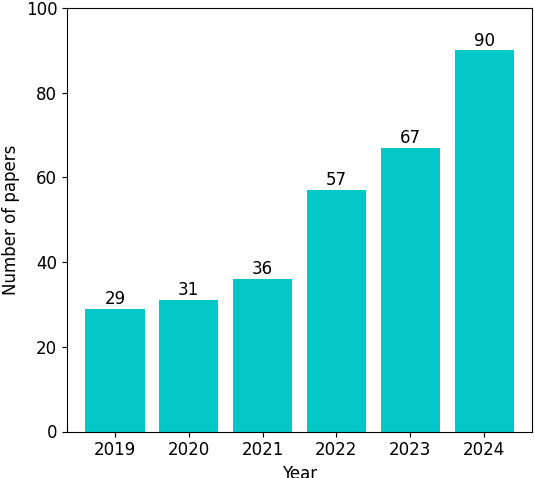
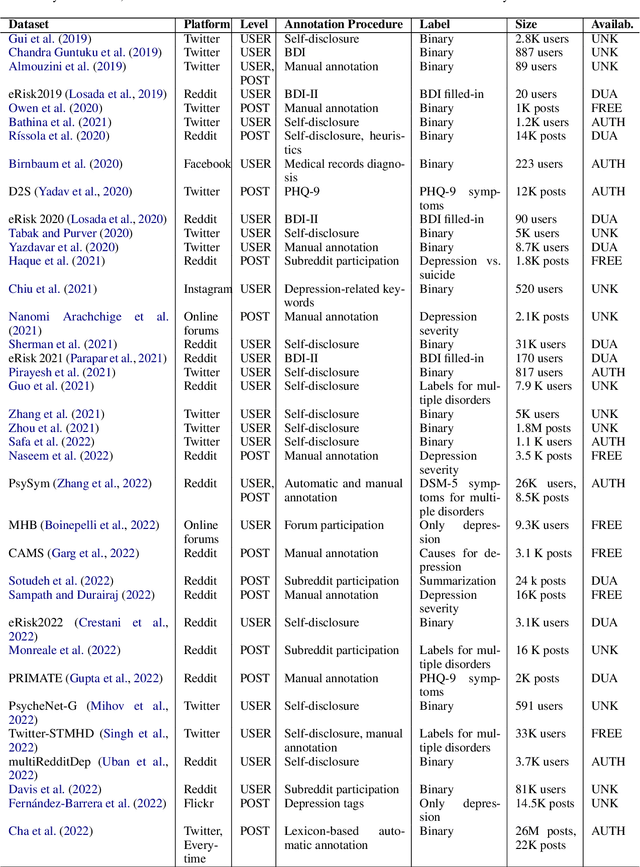
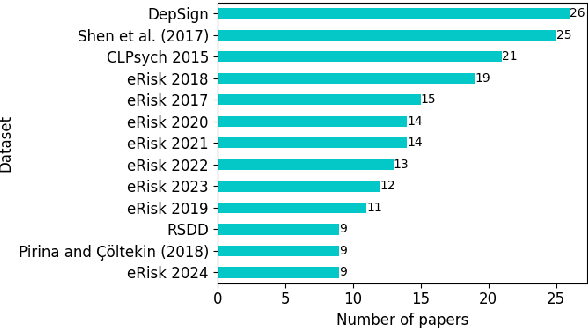
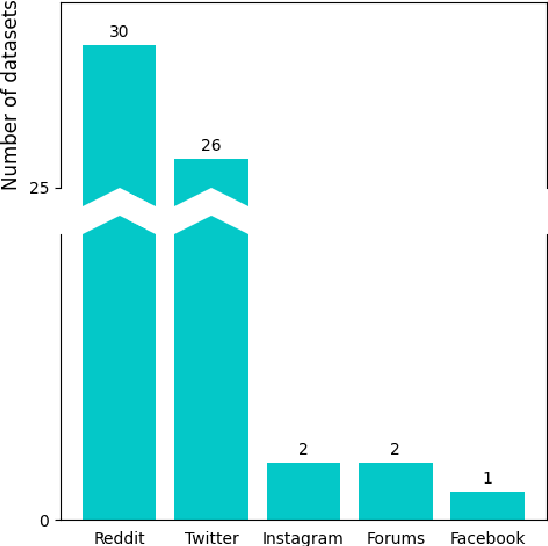
Abstract:Depression is the most common mental health disorder, and its prevalence increased during the COVID-19 pandemic. As one of the most extensively researched psychological conditions, recent research has increasingly focused on leveraging social media data to enhance traditional methods of depression screening. This paper addresses the growing interest in interdisciplinary research on depression, and aims to support early-career researchers by providing a comprehensive and up-to-date list of datasets for analyzing and predicting depression through social media data. We present an overview of datasets published between 2019 and 2024. We also make the comprehensive list of datasets available online as a continuously updated resource, with the hope that it will facilitate further interdisciplinary research into the linguistic expressions of depression on social media.
On the State of NLP Approaches to Modeling Depression in Social Media: A Post-COVID-19 Outlook
Oct 11, 2024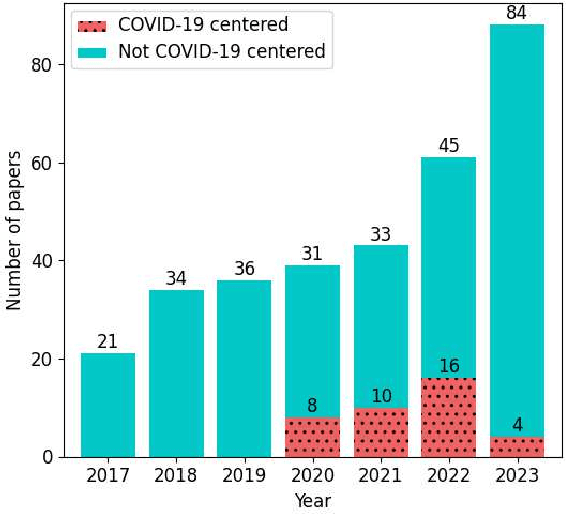
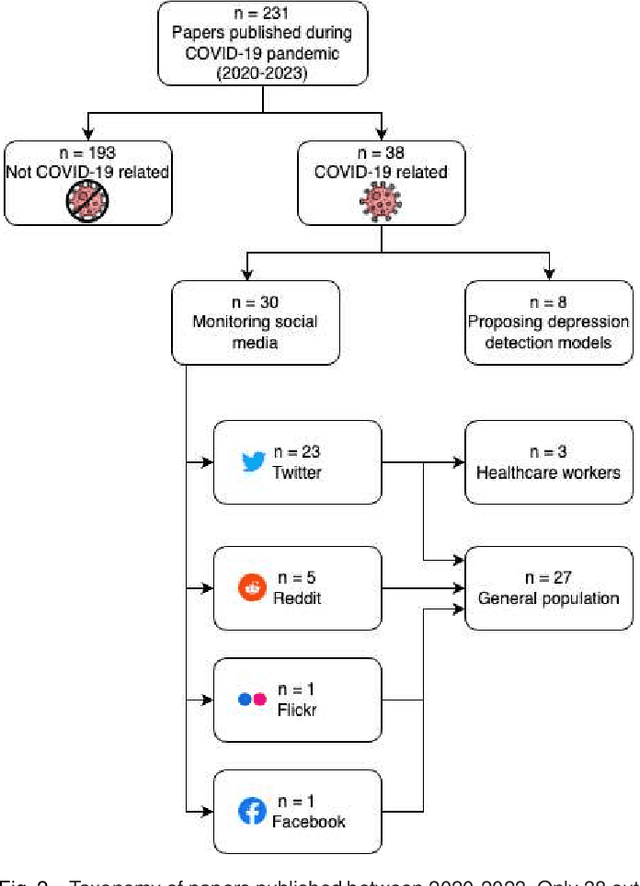
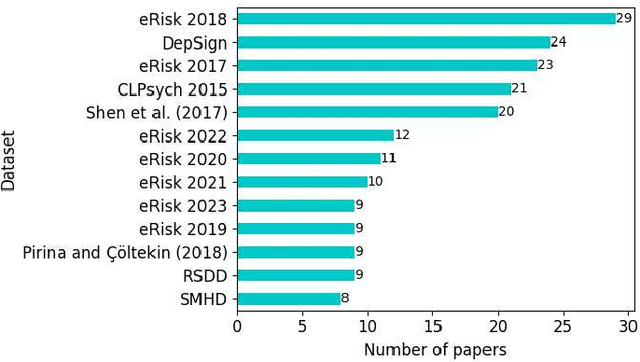
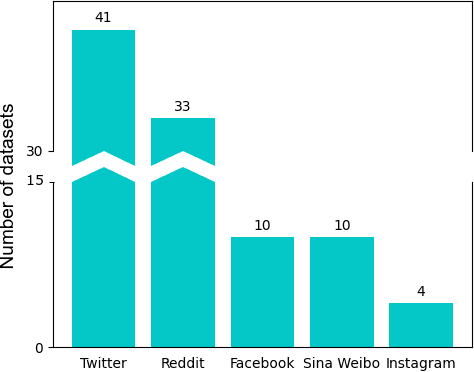
Abstract:Computational approaches to predicting mental health conditions in social media have been substantially explored in the past years. Multiple surveys have been published on this topic, providing the community with comprehensive accounts of the research in this area. Among all mental health conditions, depression is the most widely studied due to its worldwide prevalence. The COVID-19 global pandemic, starting in early 2020, has had a great impact on mental health worldwide. Harsh measures employed by governments to slow the spread of the virus (e.g., lockdowns) and the subsequent economic downturn experienced in many countries have significantly impacted people's lives and mental health. Studies have shown a substantial increase of above 50% in the rate of depression in the population. In this context, we present a survey on natural language processing (NLP) approaches to modeling depression in social media, providing the reader with a post-COVID-19 outlook. This survey contributes to the understanding of the impacts of the pandemic on modeling depression in social media. We outline how state-of-the-art approaches and new datasets have been used in the context of the COVID-19 pandemic. Finally, we also discuss ethical issues in collecting and processing mental health data, considering fairness, accountability, and ethics.
 Add to Chrome
Add to Chrome Add to Firefox
Add to Firefox Add to Edge
Add to Edge